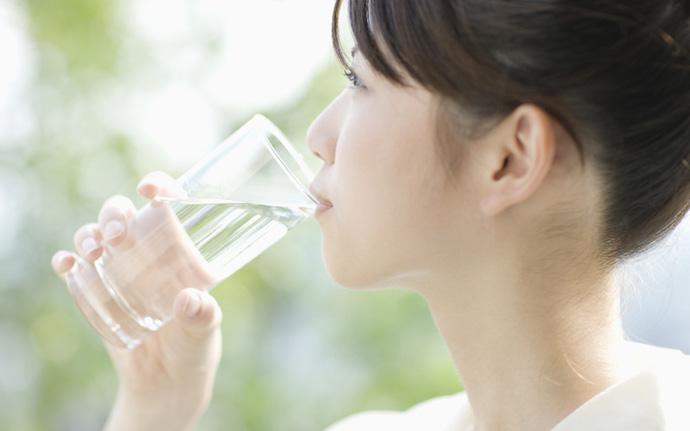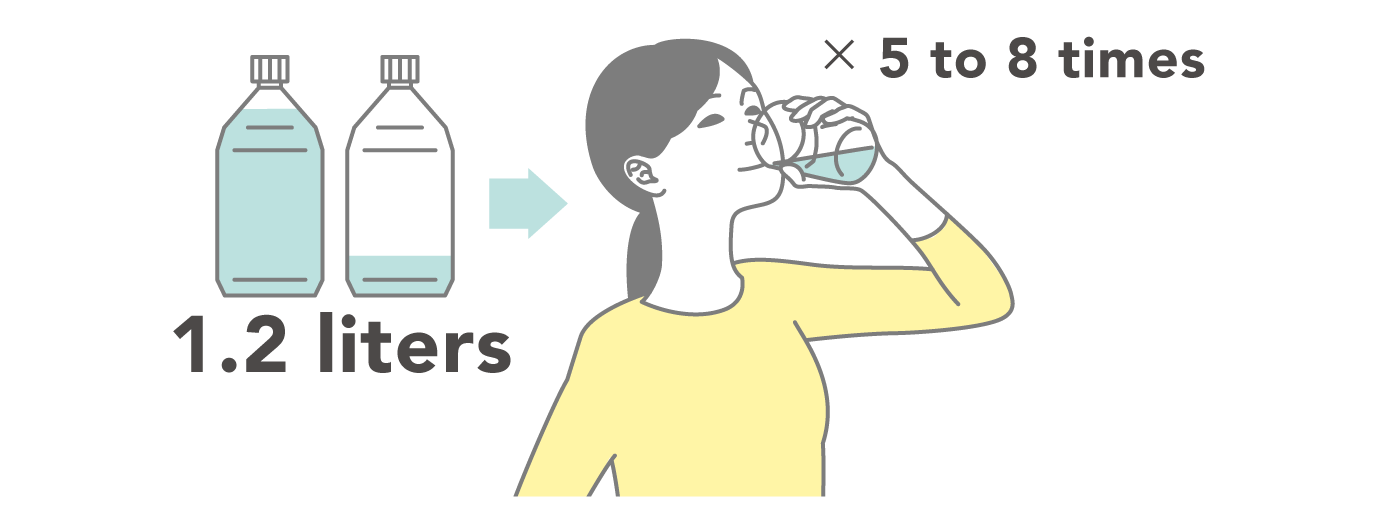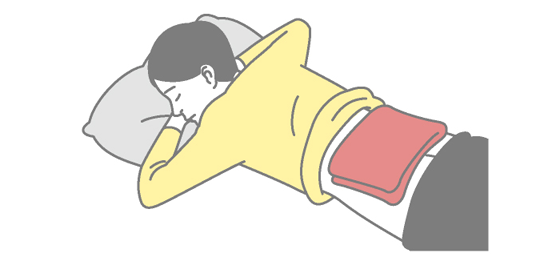
There are various tips to produce stool without placing a burden on your anal area, such as diet in daily life, appropriate exercise, and sleep. Methods such as drinking sufficient water and warming your body are also effective.
To avoid burden on your anus, you need to keep your stool moderately soft, that is, "not hard or loose". The water content in a healthy stool is said to be 70 to 80% of the total, less than 70% for a hard stool, and 80% or higher for diarrhea condition. Therefore, adequate hydration is also important.1)。
A rough standard of water required per day for a healthy condition is considered to be 2.5 liters. Of the volume, approximately 1.2 liters are taken from drinking water.2) This volume is the same in the case of constipation. The key is the timing of intake. To help keep water in the intestines, you should drink a cup of room temperature water (about 200 mL) 5 to 8 times a day.

The nursing technology called "hot fomentation" has been reported to improve physical and mental symptoms by warming the body.3)
Hot fomentation stimulates some parts of body with heat and is effective in promoting bowel peristalsis and improving symptoms of chronic difficulty in bowel movement. In addition, the method helps improve or cure inflammation, and reduces associated symptoms caused by some causative symptoms (e.g., shoulder muscle stiffness caused by hypertension), and there are few reports of adverse reactions to the method.
All you have to do is to apply a towel that you have wrung out from hot water at about 70℃ to your lower back for 10 min. Application of a commercially available steam thermo-sheet to the lower back may also be effective.

[Reference]
1) Konomi H: Public Lectures at Tokyo Takanawa Hospital, the 14th “Good Poop, Worrisome Poop”, 2018
2) Ministry of the Environment: Heatstroke Environmental Health Manual 2018, 2018
3) Kira I.: Japan Academy of Nursing Science_Tamatebako for Nursing Research (FY 2017), 2017
https://www.jans.or.jp/uploads/files/committee/tamate_16_pp.pdf